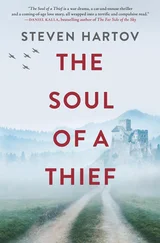My jobs have not defined me. With a minimum of training, almost anyone could have had my employment record without leaving a trace.
I have become an altogether different person from the man I once was. Now I’m something, someone, else. You might not notice me. I am in disguise. Mine is an old story.
Keats describes his “knight-at-arms” who fell in love with a beautiful maid, la belle dame sans merci, as having awakened “on the cold hill’s side.” I woke up there, too, alone. Like Keats’s knight, I was found “palely loitering”—beautiful phrase. Cold hill’s side. Palely loitering.
BEING A PARENTto two sons involves complicated logistics. This is one of those clichés that happens to be true. You have to plan ahead to make sure the car has arrived in the correct place at the correct time. The scheduling of such matters may seem trivial, but family life cannot be managed otherwise. The weekly roster attached to the refrigerator dictates who should be where, and when. Without it, chaos would descend on all of us. Jeremy, our older boy, has to be picked up after swim practice at exactly six thirty p.m. most days. If I were to forget or slip up, he would feel demeaned and ignored. But I have never forgotten.
When I’m scheduled to get him, and my wife, Laura, stays at home to make dinner, I sit there waiting in the car facing the exit doors of the locker rooms. Outside, evening has come on, and darkness has descended, except for those scattered pools of illumination under the parking lot’s flood-lights. In cars near my own, other adults await their children, all of us clustered together in a parental flock. Some keep their motors running so that the warm interiors will seem comforting when their kids open the door. Certain parents — I am one of them — think that this practice wastes gasoline and is ecologically unsound. My car will warm up fast enough once I have started the engine.
It is peaceful here. I keep the radio going, usually tuned to the public radio classical music station, sometimes to a local jazz station that is struggling to stay afloat. The afternoon programming director at the classical station likes the music of Hector Berlioz and often puts that composer’s shorter pieces into the rotation. A few weeks ago, they were playing Harold in Italy while I watched the kids straggle out.
What’s odd is that the girls always show up first. You’d think the boys would appear before the girls do, but, no, it’s the girls who emerge initially, with their hair pulled back or scrunched up. They often stand there while their eyes get used to the semi-dark. They look exhausted. They scan the parking lot for their parents. (The rich kids scurry to their own vehicles and drive off, but ours is a public school in the suburbs, and there isn’t that much flaunting of wealth.) The girls find where their moms or dads have parked, and they clamber in. The cars start up and drive away.
Then the boys wander out, many of them wearing earbuds connected to their iPods. Boys, I have noticed, listen to music much more often than girls do. Although they take longer to shower and dress (why? it is a great mystery), they have invariably failed to comb their hair. Their hair goes up and out every whichway. The boys’ faces have that circle-around-the-eyes raccoon look from the swimming goggles they wear, and, also like the girls, they have the appearance of complete exhaustion.
If I am part of a car pool, Jeremy and one or two of his teammates will throw their backpacks in the trunk and drop themselves wordlessly onto the front or back seat. Instantly the car smells of chlorine. If Jeremy is alone, he tosses his gear on the floor and sits down next to me. I ask him how his day went, and he usually shrugs and says, “Okay.” I have learned not to push a conversation on him. He’s usually too tired to make a social effort anyway.
All he wants, most nights, is to get home so that he can eat dinner. His appetite seems to know no bounds; he’s always famished.
You would think that in a car pool the boys would start talking to each other, but they don’t. They just sit there, mute, waiting to be delivered. Sometimes a few syllables are muttered, a sentence fragment here or there: that’s all. Tiny shards of music — death metal, hip-hop, rap, folk rock, whatever — fly around the car’s interior from their earbuds.
On the night the radio station was playing Harold in Italy, I accidentally kept it on. Typically I turn the car’s radio off when Jeremy gets in. I had forgotten I was listening to it. Halfway home, Jeremy pulled his earbuds out and pointed at the radio.
“What’s that ?” he asked. “What are you listening to?”
“Haven’t any idea,” I said, hitting the OFF/ON button, to bring forth silence.
WE ENTER THE BRIGHT HEATof the kitchen. Jeremy’s younger brother, Michael, is usually there, setting the table. (At one time, Laura thought it would be funny if we called Michael “Chad,” so that we would have two boys, Chad and Jeremy, in the house, but the joke proved to be too arcane and quickly died.) Our son Michael is a character. He has the intelligent eager expression of a little wolf. Unlike his older brother, who seems straightforward and strong and indulgent, already dad material, Michael is a trickster, a wily pipsqueak shape-shifter. He has a highly developed, but occasionally comic, compassion for the downtrodden.
For this reason he goes through phases. At nine, he threw his lot in with African Americans and claimed himself as one of them. He was enraged when I told him that he couldn’t be black, ever, because he himself was white. In his most recent phase, he decided that he was gay (he is now almost twelve) and that we were all to call him “McQueer,” which, he said, would be his trademark. At the dinner table his older brother told him wearily that if he went to school demanding that he be called McQueer, he’d get himself beaten up. Michael replied that such a result would be fine. “I can take it,” he said, reaching for the serving dish containing mashed potatoes. “Faggots like me have to take it.”
“Don’t be retarded. And don’t call yourself that,” Jeremy said.
“What?”
“That word.”
“What word?”
“The one you used. Anyway, dummy, you’re not gay.” Jeremy said this through a mouthful of food. “Not this week.”
“How do you know?”
“I’m not discussing this. This is ridiculous. Please pass the meatloaf.”
“I’m as queer as a three-dollar bill.”
“You can’t decide things like that. Come back when you start dating guys, and we’ll talk.” Great quantities of meatloaf were shoveled onto Jeremy’s plate and quickly disappeared into his mouth. I reminded myself that I should issue instructions to him now and then to chew. But he’s getting too old for that. Next year he’ll be out of the house. You can’t order a seventeen-year-old boy to chew his food.
“Me and my queer friends are gonna do something big,” Michael announced. Then he lifted his boyish fist. “Power to the queer nation.”
“‘My queer friends and I,’” Laura corrected him, with a weariness close to Jeremy’s.
“Hey, you’re queer, too, Mom?” Michael asked, seeing his advantage. “I never knew that.”
Changing the subject, my wife inquired, “How was school today?”
“It was a scene of unparalleled horror,” Michael told her. “This kid threw up in class.”
So much for that. Usually Laura and I let Jeremy be the spokesperson for worldliness when confronted with Michael’s latest idea and his latest expression, such as “a scene of unparalleled horror,” which, these last few days, he has employed every ten minutes.
Читать дальше












